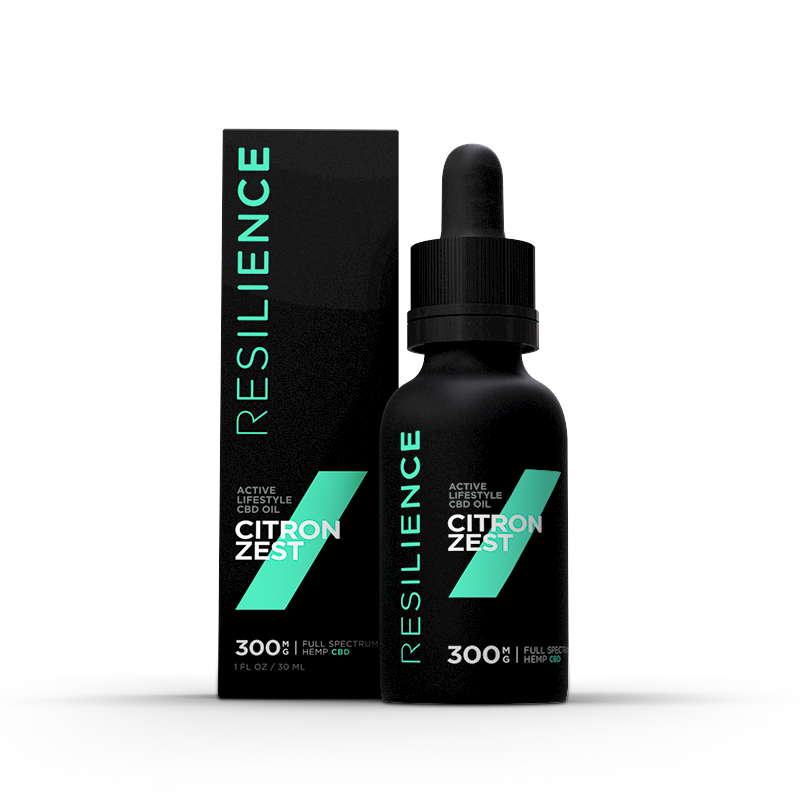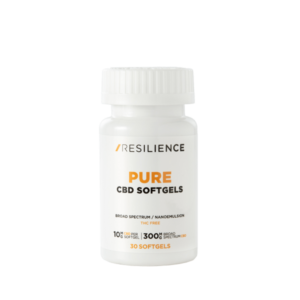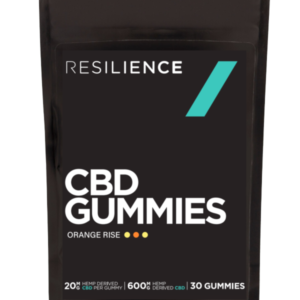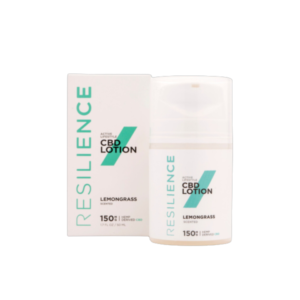
Cannabis consumption, more specifically CBD consumption, exploded onto the scene a few years ago and has only grown in popularity since. If you’re considering joining the ever-growing group of cannabis users and jumping on the CBD bandwagon (or CBanDwagon-too much?), you might first have questions about how exactly you’ll feel and what risks there might be that could be to suffering from cognitive impairment or brain damage.
Does CBD affect memory processing? Nope! CBD has not been found to promote memory loss or memory impairment.
But if you’re concerned over the specifics, we’ll dive deep into the details so you can rest assured your CBD wellness routine isn’t promoting cognitive decline and hindering your memory processing capabilities-in fact, it just might be helping them.
Key takeaways:
- CBD treatment products aren’t known to impact short-term memory negatively.
- CBD may even improve cognitive functioning and prevent memory deficits
- Many people use CBD regularly for enhanced concentration, focus and overall brain function.
What is CBD?
CBD is the abbreviated title for cannabidiol , which is a natural component of Cannabis sativa, the hemp and marijuana plant. Unlike THC (the other notable element of Cannabis), CBD does not produce the same “high” feeling, but is instead used for its physical and mental benefits.
It’s impossible to understand how CBD works without explaining the endocannabinoid system (ECS). This system within the human brain is made up of receptors-type 1 (CB1) and type 2 (CB2)-that play a role in several important psychophysiological functions:
- Sleep
- Mood
- Appetite
- And most importantly (for this discussion, anyway), memory performance
Your body naturally produces endocannabinoids, or endogenous cannabinoids (that fancy word simply means they’re made within the body). Endocannabinoids bind to your CB1 and CB2 receptors to maintain internal functioning. They might send signals to help mitigate discomfort, or alleviate swelling, for example.
Exogenous cannabinoids -you guessed it!-are made outside of the body, like CBD and THC. These compounds don’t bind to the endocannabinoid receptors in the same way but can similarly impact the same important bodily functions and processes-including memory!
The Endocannabinoid System and Memory
While scientists are still understanding exactly how the ECS affects memory, it’s become increasingly clear that it does to some extent.
For starters, CB1 receptors are abundant in the hippocampus, the part of the human brain responsible for memory function, formation and processing.
But beyond that, both endogenous and exogenous cannabinoids seem to have varied effects on the different phases of memory, which are:
- Acquisition – Perceiving and encoding an event, person, fact, or sensation
- Retention or consolidation – Storing the memory somewhere in our brain vault
- Retrieval – Recalling the details of the initial memory later on
When we struggle to recall short-term memories, this is usually a glitch in the consolidation phase. We perceive the event, but our brain neglects to turn this experience into a solidified memory. It never gets filed away under Things I Did Last Night or What Aunt Betty Got Me For Christmas This Year .
Long-term memory loss, on the other hand, usually happens in the retrieval phase. We were once able to recall the event-it must have been transcoded from short-term into long-term memory at some point-but there was some sort of mix-up in the filing cabinet. Either the memory is gone, the details are fuzzy, or this file folder has been tossed together with another, meaning we think we remember what happened, but the specifics are all wrong.
But it’s not just about the phase of memory involved. The effect of cannabinoids depends on the type of chemical involved and how it interacts with the endocannabinoid receptors. For example:
- CB1 receptor agonist – An agonist is a chemical that binds to the cannabinoid receptors, initiating some kind of response. According to one study, the CB1 receptor agonist impaired acquisition, consolidation, and retrieval in both long and short-term memory processes. In another study, the agonist simply did not affect memory retrieval.
- CB1 receptor antagonist – On the flip side, an antagonist is a chemical that inhibits a physiological response, the way the villain of a novel or movie stops the protagonist from reaching their goal. In the same two studies as mentioned above, the CB1 receptor antagonist improved the memory processes. In fact, in the first study mentioned, a tiny, otherwise negligible dose of the antagonist reversed the cognitive impairment results caused by a much more substantial dose of the agonist.
How CBD Impacts Memory Systems
Although CBD has been around for quite some time, it started gaining momentum in 2018 when hemp-derived products were legalized through the Hemp Farming Act. Despite its mainstream popularity and growing user base, there’s only so much research that can happen in the span of three years. Researchers are putting increased efforts into studying CBD and its benefits, but they don’t have all the answers just yet.
However, they’ve been studying the ECS and its interactions with memory and learning for quite some time. The picture isn’t entirely in focus yet, but the developing relationship between CBD and memory function is rather compelling.
Regardless, there’s enough research on CBD and memory out there to put your mind at ease:
- A study in Neuropharmacology studied the effects of both THC and CBD on working memory. Researchers found that CBD-rich extracts did not impair either spatial working memory or short-term memory, even at relatively high doses (50 mg of CBD per kg of body weight).
- A study in Cannabis and Cannabinoid Research found that CBD, when administered in conjunction with THC, protected against the adverse effects of THC alone, including difficulty with object recognition and behavioral abnormalities.
These two studies show support for both CBD isolates and broad-spectrum products, as well as full-spectrum CBD, which includes small amounts of THC. As long as CBD is present in the compound, it seems you have nothing to worry about-CBD will act as your protectorate for cognitive function.
And if it’s not going to harm you, is there a chance CBD can actively help you?
- A study in Psychopharmacology found that CBD had “memory-rescuing effects” in subjects with cognitive and memory difficulties. Just one dose of CBD at 10 mg/kg was able to recover previously forgotten memories, giving credence to the use of CBD as a neurological enhancement, rather than a hindrance.
- A similar study in Neuropsychopharmacology also measured the effects of CBD on memory-deficit subjects. This one showed improvements in recognition memory-identifying an object, feeling, or situation as familiar-and in working memory-holding information temporarily to perform daily tasks, like repeating back an address or following instructions someone just gave you. They also noted improved social interaction.
Findings like this have prompted further investigation into the potential benefits of CBD, specifically for people with memory, attention, and cognitive issues. Hopefully, new findings will uncover promising uses for CBD, but for now, the worst-case scenario seems to be no change at all-and no news is good news, as they say!
Cognitive Benefits of Regular CBD Use
Clinical studies help determine efficacy and safety, but a laboratory environment can’t exactly simulate the real world. It’s important to note all the ways that people, just like you, benefit from a daily dose of CBD-here and now.
Many habitual users experience mental clarity, heightened focus, and improved concentration.
Now, how exactly does that work? Well, think of the most significant factors impeding your ability to concentrate. Poor sleep, maybe? Restlessness, jitters, and swirling thoughts? Feeling down, and therefore distracted?
CBD may be able to assist with all of the above and more:
- For those feeling a bit stressed out and uneasy, CBD can mellow some of those negative feelings. One study shows that CBD has an anti-panic effect , which may be related to the neurotransmitter serotonin, also known as the “happy hormone.”
- Restless sleep is often a result of nighttime preoccupations and jitters, not unlike the nervous energy some people feel throughout the day (the same nervousness that CBD’s anti-panic effect has been shown to mitigate). By bringing you peace of mind before bed, you’ll likely be able to sleep longer, deeper, and better . And a well-rested mind is better able to focus on the day ahead.
- Finally, people who are well-rested and genuinely relaxed tend to have a more uplifted mood . Plenty of CBD enthusiasts cite feelings of general happiness and positivity with chronic use. When nothing’s weighing you down, you can devote your full attention to the people and projects around you.
With all that negative stuff out of the way, plus the compelling improvements in learning and memory, you’ll likely be better able to focus on whatever’s ahead.
Incorporating CBD Into Your Daily Routine
As you can see, the beneficial CBD effects are deeply intertwined. That’s because our mood, stress levels, sleep quality, cognitive function, general health, and more are similarly entangled in ways we might not even fully recognize. When one area suffers, the rest might suffer, too.
But when we thrive in one aspect of life, the others are bound to follow suit!
By incorporating CBD into your daily life, you’ll likely notice benefits across the board. That’s why CBD supplements can work so well as daily boosters, whether in energy, concentration, mood, relaxation, or all of the above.
This works best if you commit to consistent CBD use, rather than a one-off here or there. Like any cannabinoid, CBD takes time to build up in the body to affect the ECS. If you don’t notice CBD effects right away, that could be why. Give yourself a real shot at enjoying the benefits before moving onto something else.
There are a few CBD products to choose from based on your preference and needs. Whether in the form of CBD oil, CBD gummies, or topicals, finding the best CBD product for you helps you reap all the benefits associated with the hemp plant extract.
Like anything worth doing, persistence is key.
Resilience CBD: A Name You’ll Remember
Hopefully, we’ve dispelled any negative rumors you may have heard about CBD’s effect on memory, but that doesn’t mean you should pick up and use the next CBD oil you see.
Good CBD has to meet your high standards. Resilience CBD checks all the right boxes:
- Clearly labeled formulas, whether they’re isolates, broad-spectrum, or full-spectrum
- Rigorous third-party lab testing to ensure safety, quality, and consistency
- All the memory benefits of pure CBD compounds or an effective CBD-THC blend
- A range of products to choose from, from gummies to oils to topicals and bath bombs
Whatever you’re looking for, you’ll find it here. Persistence isn’t the only important virtue in finding your perfect CBD product-Resilience matters just as much.
 Written by: Michael Tatz | Linkedin
Written by: Michael Tatz | Linkedin
Michael Tatz is the Co-Founder of Resilience CBD, and a passionate leader in the health & fitness world helping others rise to and crush their wildest goals. A former Division 1 college wrestler, Army Officer, and investment manager at Goldman Sachs, he has pushed his body and mind to the limits on the mats, dressed in camo, and in the boardroom.
Today, he spends his time leading Resilience CBD to develop the absolute best recovery products for athletes everywhere. Resilience was founded after CBD personally impacted Michael’s life, and the brand was built to partner with everyday athletes in pursuit of conquering their most difficult challenges, rebounding after their toughest performances, and rising to their goals that once seemed impossible.
Sources:
- Healthline. A Simple Guide to the Endocannabinoid System. https://www.healthline.com/health/endocannabinoid-system
- Neurobiology of Learning and Memory. Differential role of the hippocampal endocannabinoid system in the memory consolidation and retrieval mechanisms.https://www.sciencedirect.com/science/article/abs/pii/S1074742708000130
- Behavioural Brain Research. CB1 receptors in the formation of the different phases of memory-related processes in the inhibitory avoidance test in mice. https://pubmed.ncbi.nlm.nih.gov/26711911/
- Neurobiology of Learning and Memory. Differential role of the hippocampal endocannabinoid system in the memory consolidation and retrieval mechanisms.
- Library of Congress. H.R.5485 – Hemp Farming Act of 2018. https://www.congress.gov/bill/115th-congress/house-bill/5485
- Neuropharmacology. Differential effects of THC- or CBD-rich cannabis extracts on working memory in rats. https://www.sciencedirect.com/science/article/abs/pii/S0028390804002564
- Cannabis and Cannabinoid Research. Chronic Adolescent Δ9-Tetrahydrocannabinol Treatment of Male Mice Leads to Long-Term Cognitive and Behavioral Dysfunction, Which Are Prevented by Concurrent Cannabidiol Treatment. https://www.ncbi.nlm.nih.gov/pmc/articles/PMC5655843/
- Psychopharmacology. Memory-rescuing effects of cannabidiol in an animal model of cognitive impairment relevant to neurodegenerative disorders. https://pubmed.ncbi.nlm.nih.gov/21870037/
- Neuropsychopharmacology. Improved Social Interaction, Recognition and Working Memory with Cannabidiol Treatment in a Prenatal Infection (poly I:C) Rat Model. https://www.nature.com/articles/npp201740
- Psychopharmacology. Involvement of serotonin-mediated neurotransmission in the dorsal periaqueductal gray matter on cannabidiol chronic effects in panic-like responses in rats. https://pubmed.ncbi.nlm.nih.gov/23007604/







